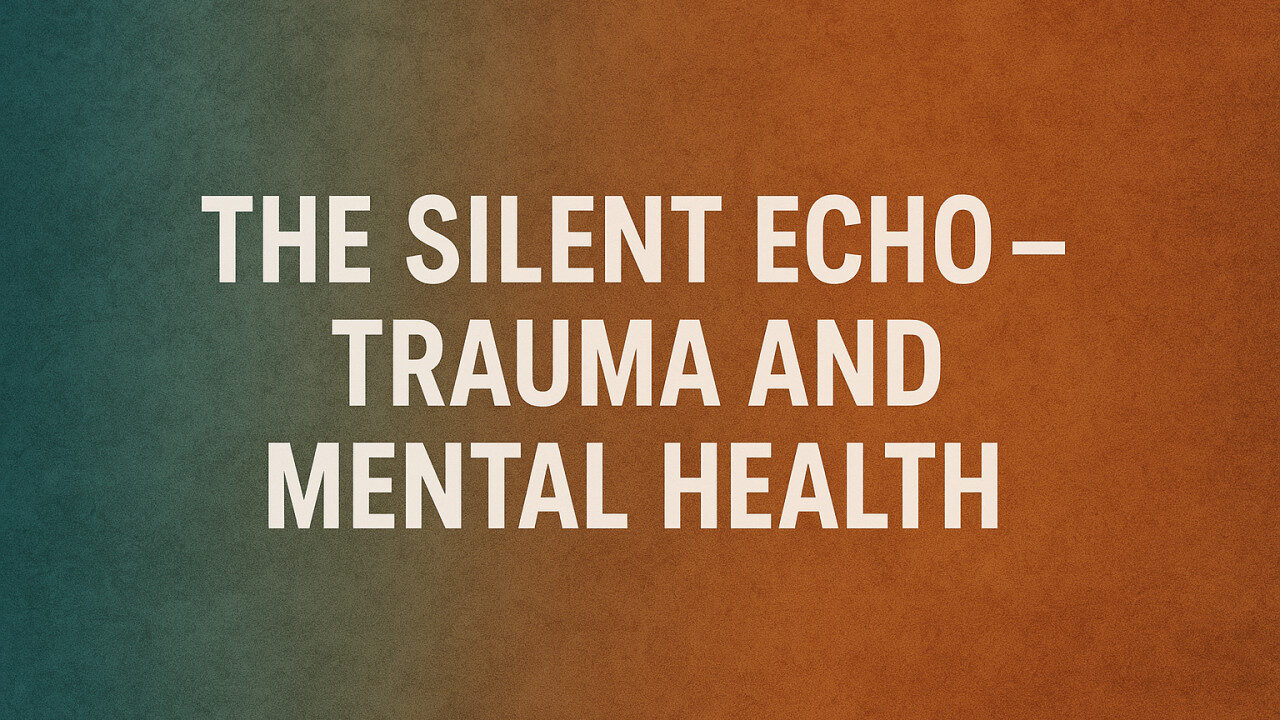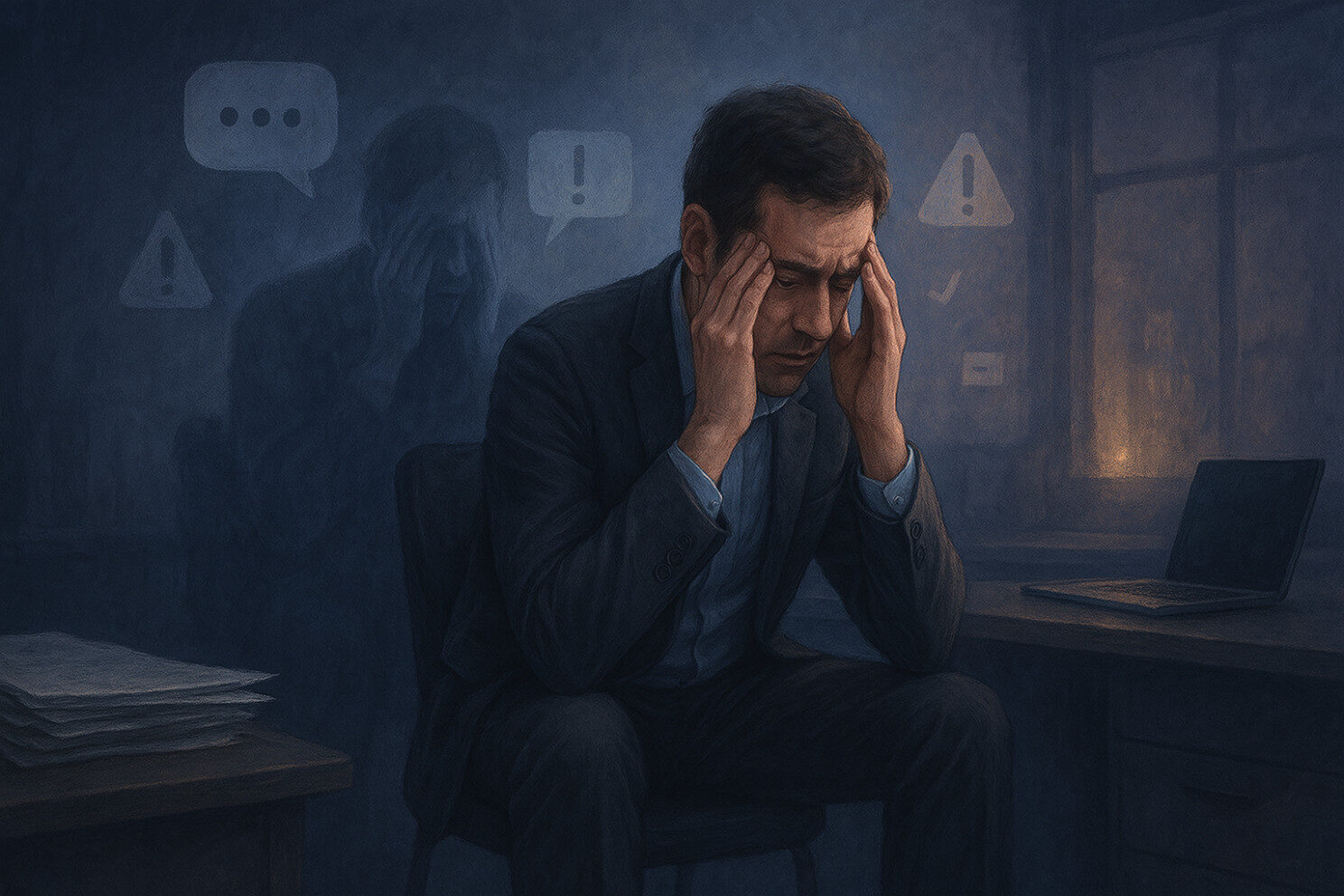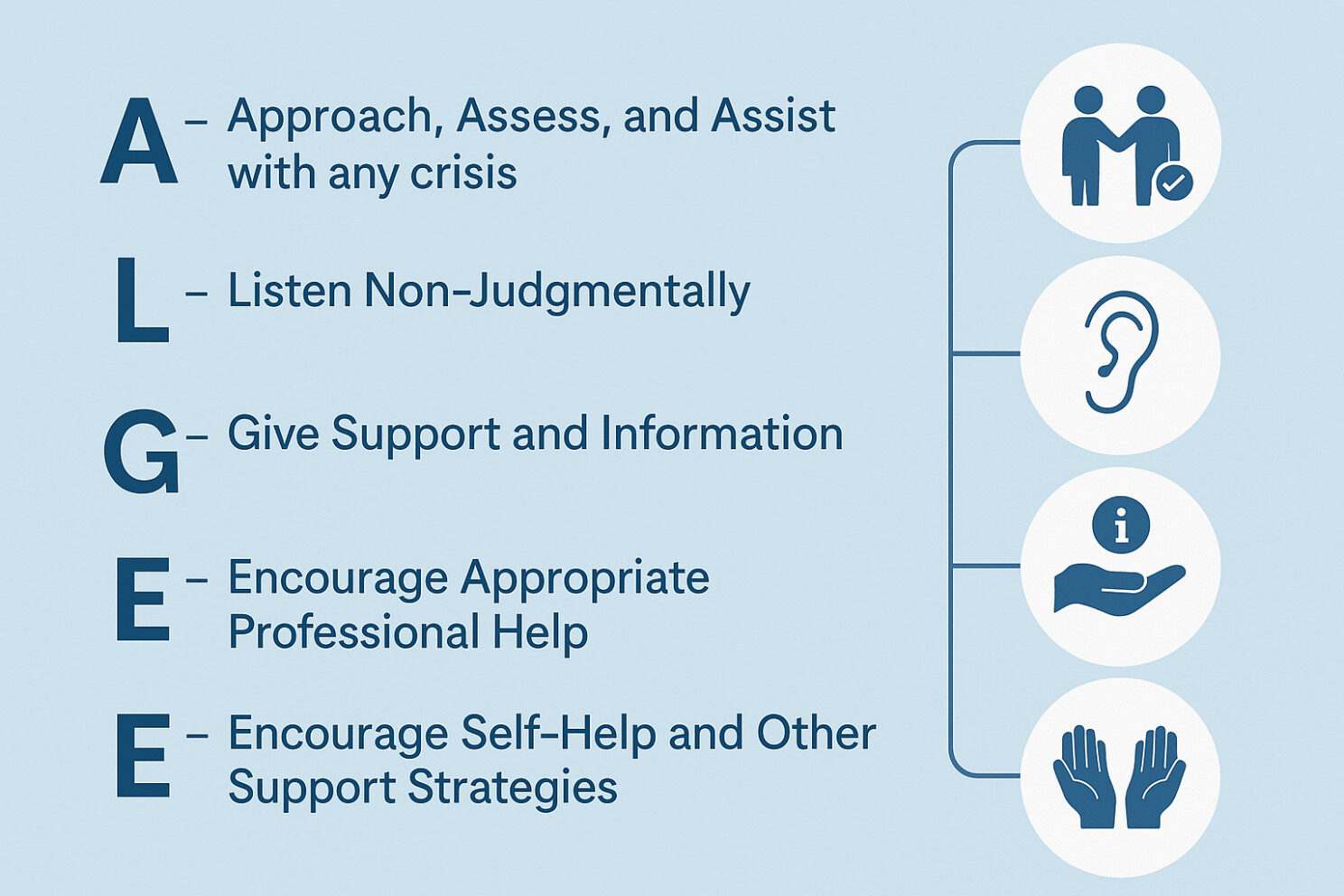

Imagine a moment when your world shifts abruptly – when the familiar becomes foreign, and the ground beneath you feels unsteady. Trauma is that invisible wound, often hidden from the naked eye, yet profoundly altering the landscape of one’s inner world.
At its core, trauma is an emotional response to an event or series of events that are deeply distressing and/or disturbing. These experiences overwhelm an individual’s ability to cope, leaving them feeling powerless, vulnerable, and profoundly changed. Trauma doesn’t adhere to a single narrative; it wears many faces and emerges from various circumstances:
 Trauma is not confined to the event itself but is deeply rooted in the individual’s subjective experience. Two people might endure the same incident, yet their internal responses can diverge dramatically. It’s this personal perception that defines the traumatic impact, making it a profoundly individual journey.
Trauma is not confined to the event itself but is deeply rooted in the individual’s subjective experience. Two people might endure the same incident, yet their internal responses can diverge dramatically. It’s this personal perception that defines the traumatic impact, making it a profoundly individual journey.

The echoes of trauma reverberate beyond the initial event, influencing thoughts, emotions, behaviours, and even physical health. It’s a silent echo that can shape relationships, self-esteem, and one’s worldview. Recognising and understanding trauma is the first step toward healing, breaking the silence that often surrounds these experiences, and acknowledging the profound impact they have on mental health.
Trauma doesn’t quietly pass through our lives. It lingers, subtly at first, like whispers in the dark corners of our minds, gradually becoming louder until it echoes through every aspect of our existence. The silent echo of trauma can transform our mental landscape in profound and often distressing ways.
When trauma settles within us, our minds respond defensively, triggering survival mechanisms that once protected us, but now cause distress, confusion, and emotional turmoil. It is not a weakness – it’s human nature. It’s a testament to our instinctive drive to survive. Yet, this very instinct can create profound struggles long after the initial event has passed.
The mental health consequences of trauma are as diverse as the individuals experiencing them. Common emotional and psychological impacts include:



These consequences are neither imaginary nor exaggerated; they’re real responses to real wounds. If left unrecognised or untreated, the silent echoes of trauma become deafening, amplifying feelings of isolation, stigma, and misunderstanding.
It’s vital that we acknowledge and validate the profound mental health impacts trauma can have. Only by understanding these echoes can we begin to silence stigma, foster compassion, and encourage meaningful dialogue around trauma recovery. By sharing our struggles openly, we dismantle the walls built by isolation and shame, making healing not just a possibility, but a collective journey towards resilience and hope.
“Trauma survivor.” These two words carry enormous weight. They aren’t mere labels – they’re acknowledgements of strength, resilience, and the invisible battles you may have fought or might still be fighting every day. Recognising yourself as someone who has experienced trauma can feel daunting, even frightening. But it’s also profoundly empowering. It’s a powerful first step towards healing, recovery, and reclaiming your sense of self.
You may wonder if your experiences qualify as traumatic. Perhaps you compare yourself to others, questioning whether your struggles are significant enough to merit acknowledgment or support. Trauma doesn’t adhere to a hierarchy. Your pain, your fears, your struggles – they are valid, irrespective of how they compare to someone else’s experiences.
Pause for a moment and consider these reflections:
 If any of these resonate with you, know that you are not alone. Recognising trauma is a courageous act of self-awareness. It’s not about dwelling in pain; it’s about stepping bravely into a journey of healing. It’s about acknowledging your resilience in surviving experiences that tested you in ways others may not fully comprehend.
If any of these resonate with you, know that you are not alone. Recognising trauma is a courageous act of self-awareness. It’s not about dwelling in pain; it’s about stepping bravely into a journey of healing. It’s about acknowledging your resilience in surviving experiences that tested you in ways others may not fully comprehend.

Trauma can feel isolating, convincing us we are alone in our suffering. But the truth is, you belong to a vast community of survivors, each navigating their own silent echoes. Your experience is uniquely yours, but your feelings, fears, and hopes for healing are shared by countless others.
By acknowledging your trauma, you’re choosing courage over silence, connection over isolation, and recovery over resignation. And most importantly, you are reclaiming your narrative, moving from survival towards a life defined by resilience, growth, and meaningful connection.
You are more than what happened to you. You are a survivor – and your journey towards healing begins with recognising and honouring your own story.
Trauma doesn’t fade quietly into the past. Left unaddressed, it can grow, transforming into devastating consequences that ripple through every aspect of a person’s life. This is perhaps one of the most difficult truths to face, yet understanding it fully is essential if we are ever to truly break down the stigma surrounding mental health.
Let’s confront these raw realities head-on:
 These harsh outcomes aren’t inevitable, but for trauma survivors who feel unable or unsupported in fully addressing their ongoing emotional wounds, these challenges can persist or intensify. It’s crucial we talk about them openly – not to alarm, but to validate. By acknowledging these potential consequences, we strip away the layers of shame, fear, and secrecy that compound suffering and isolation.
These harsh outcomes aren’t inevitable, but for trauma survivors who feel unable or unsupported in fully addressing their ongoing emotional wounds, these challenges can persist or intensify. It’s crucial we talk about them openly – not to alarm, but to validate. By acknowledging these potential consequences, we strip away the layers of shame, fear, and secrecy that compound suffering and isolation.

Facing these truths is painful, yet powerful. It can spark meaningful change – prompting honest conversations, compassionate responses, and stronger support systems. Above all, it reminds us that behind every difficult outcome lies a person desperately seeking hope, compassion, and the genuine human connection they deserve.
If we’re ever to truly break stigma, we must bravely look trauma’s darkest consequences in the eye:
Not to judge, but to understand.
Not to isolate, but to connect.
Not to stigmatise, but to support.
This raw honesty is how we start healing together.
Trauma never stays contained within the boundaries of one person’s life. Its impact ripples outward, reaching into relationships, friendships, workplaces, and entire communities. Each silent echo reverberates far beyond the individual, changing the lives of those who matter most, often in unexpected and challenging ways.
Family members often become unintended participants in a survivor’s emotional aftermath. They may feel helpless, frustrated, or confused by their loved one’s changed behaviour. Conversations once effortless become cautious, strained, or filled with misunderstanding. Partners might grapple with guilt, wrongly believing they’re somehow responsible for their loved one’s emotional withdrawal or irritability. Parents, siblings, and children may wrestle with feelings of sadness or anger, struggling to grasp the invisible wounds affecting someone they care deeply about.
Trauma can strain even the closest friendships. Social interactions that once felt comfortable and natural may now be exhausting or anxiety-provoking for survivors. Friends may feel excluded or bewildered by sudden cancellations, periods of isolation, or inexplicable shifts in mood. Unspoken tensions can create rifts – often without clear explanations, leaving friends hurt and survivors further isolated. The loss of meaningful social connections compounds feelings of loneliness and deepens the emotional wounds left by trauma.
The professional world can become particularly challenging for trauma survivors. Concentration and productivity may suffer due to intrusive memories, anxiety, or fatigue. Colleagues and supervisors might misunderstand or misinterpret behavioural changes, seeing them as signs of disengagement or unreliability rather than symptoms of trauma. Career progression can stall, and professional relationships may become strained or distant, leaving survivors feeling inadequate or undervalued, further exacerbating self-doubt and emotional turmoil.
Communities too can feel the impact of an individual’s trauma, often in subtle yet meaningful ways. Survivors may withdraw from local activities, groups, or community gatherings, inadvertently reducing their network of support and eroding the broader social fabric. Misunderstandings or stigma surrounding trauma can lead to isolation within communities, leaving survivors feeling detached, unwelcome, or invisible, even within environments that were once sources of strength and belonging.
Yet, within these profound challenges lies an important truth: Trauma’s impact on relationships and communities also provides an opportunity – a chance to cultivate deeper compassion, understanding, and awareness. Through honest conversations, patient listening, and genuine empathy, families, friends, workplaces, and communities can transform trauma’s disruptive echoes into powerful calls for unity, resilience, and collective healing.
When those around us understand the nature of trauma and its wide-reaching consequences, it creates safe spaces where survivors feel supported rather than judged, embraced rather than isolated. This collective awareness helps break the silence that often perpetuates misunderstanding, fostering environments where meaningful recovery and emotional restoration can flourish – not in isolation, but together.
Trauma may change lives profoundly, but it doesn’t have to define or destroy them. Instead, it can become the catalyst for stronger connections, deeper compassion, and community-wide resilience.
Together, we can ensure trauma’s silent echoes become voices of collective strength, empathy, and hope.
Being a Mental Health First Aider (MHFA) means offering something profoundly valuable – a safe, supportive, non-judgmental space for those impacted by trauma. As an MHFA, your role is not about diagnosing or treating trauma but creating an environment where survivors feel genuinely heard, validated, and supported. This safe space is often the first step survivors take towards acknowledging their pain, feeling understood, and starting their healing journey.
When preparing to support someone who has reached out due to trauma, it is essential to remember:

 Your ability to listen, truly listen, can change lives. Trauma survivors may be carrying their stories silently, perhaps afraid or uncertain how they’ll be received. Let them share at their own pace. Your patience and empathy are often as important as any words you might say. Avoid rushing, interrupting, or trying to “fix” the situation immediately. Your primary role is to validate their emotions, acknowledge their courage in opening up, and reassure them that their feelings are genuine and worthy of care and attention.
Your ability to listen, truly listen, can change lives. Trauma survivors may be carrying their stories silently, perhaps afraid or uncertain how they’ll be received. Let them share at their own pace. Your patience and empathy are often as important as any words you might say. Avoid rushing, interrupting, or trying to “fix” the situation immediately. Your primary role is to validate their emotions, acknowledge their courage in opening up, and reassure them that their feelings are genuine and worthy of care and attention.
As an MHFA, it’s crucial to remain calm, compassionate, and approachable – even if you’re hearing stories filled with intense emotions. Your calm demeanour becomes a pillar of stability amid their emotional turbulence. Clearly communicate your availability and genuine willingness to listen, helping them feel safe and valued during moments of vulnerability. Assure them that what they’re experiencing is a natural response to abnormal or deeply distressing situations.
Survivors have experienced situations that stripped away their sense of control. As an MHFA, your respect for their boundaries and autonomy is crucial. Let them lead the discussion, never forcing or pressuring them to disclose details beyond what they’re comfortable sharing. Respecting their boundaries helps restore their sense of empowerment and dignity, crucial components in trauma recovery.
Equip yourself with accurate information on trauma’s potential impacts and available support. Gently guide survivors towards helpful resources or professional support options without overwhelming them. Your role is to empower – not pressure – encouraging them towards support at a pace they’re comfortable with. Offer clear, actionable steps or suggestions about where they might find further help, demonstrating a caring balance between empathy and practical support.
Always assess immediate safety – ensuring survivors are safe from self-harm or harm from others. If you identify urgent risks, calmly and sensitively involve appropriate emergency services or professional support immediately. For ongoing support, reassure survivors of your continued presence. Remind them they’re not alone – that you’re there to offer support as they begin taking steps towards professional care and ongoing recovery.
Your support as an MHFA is not just about a single conversation; it’s a critical bridge connecting trauma survivors to hope, help, and healing. By consistently providing compassion, empathy, and informed reassurance, you transform your role from simply offering first aid into becoming an essential part of their broader healing journey.
Remember, every safe space you create is a powerful act against stigma, isolation, and silence. It’s your opportunity and your responsibility to foster hope, validate strength, and remind survivors that their emotional scars do not define them. Instead, they are powerful symbols of their incredible resilience, deserving recognition, compassion, and unwavering support.
When someone opens up about trauma, it’s natural to feel uncertain or unsure how best to respond. That uncertainty can sometimes stop us from reaching out entirely. But there’s a clear, structured approach that Mental Health First Aiders use to provide meaningful, compassionate support – it’s called the ALGEE framework.
ALGEE is a step-by-step method to help anyone respond effectively when someone is experiencing mental health challenges, including trauma. It’s straightforward, memorable, and specifically designed for people who want to help but might not have extensive mental health training.


Here’s what ALGEE stands for, explained as clear as possible:
The first step involves gently approaching the person in distress, making sure they’re safe, and determining if they’re in immediate danger or crisis. If someone expresses thoughts of self-harm or suicide, calmly provide immediate support and involve emergency professionals as needed. Your calm, compassionate presence can be lifesaving.
Listening – truly listening without interruption, judgement, or immediate solutions is profoundly therapeutic. Create space for them to express feelings and experiences openly. Even if you don’t fully understand, your willingness to listen helps them feel seen, validated, and less alone.
Once you’ve listened, gently reassure them that what they’re experiencing is valid and understandable. Provide clear information about trauma and mental health, ensuring they feel informed and empowered rather than confused or overwhelmed. Validate their courage in reaching out and reinforce the availability of hope and recovery.
Trauma recovery often involves professional guidance – such as therapists, counsellors, or doctors who specialise in trauma-related care. Encourage them towards these supports, gently reminding them that seeking professional help isn’t weakness; it’s an empowering act of self-care, strength, and healing.
Recovery also includes everyday actions that promote well-being – connecting with friends, engaging in relaxing activities, maintaining routines, or joining supportive communities. Encourage these self-care strategies gently and authentically, helping them rebuild routines, connections, and hope at their own pace.
Using ALGEE doesn’t require you to be a therapist or mental health expert. It’s a clear framework to guide anyone who wants to offer compassionate, meaningful support to trauma survivors. It empowers you to respond effectively, confidently, and humanely when someone reaches out for help.
To learn more about the ALGEE framework, please visit the official MHFA website: Exploring the MHFA Action Plan – Mental Health First Aid
By understanding ALGEE, you’re equipped with practical skills and confidence, transforming you into a vital ally in someone’s journey towards recovery. Remember, your compassion, patience, and understanding can make all the difference. ALGEE simply provides the structured guidance to turn your genuine care into powerful support.
Trauma doesn’t discriminate. It doesn’t ask permission. It doesn’t pause to consider age, gender, race, or social status. It quietly infiltrates lives, leaving behind echoes that can last a lifetime. The reality is, trauma and its impacts on mental health are woven deeply into our society – often hidden, frequently misunderstood, yet always profoundly real.
In addressing trauma openly, we take critical steps towards breaking the suffocating silence and stigma that too often surrounds it.
Trauma survivors are everywhere: in our families, workplaces, schools, and communities, quietly carrying burdens many around them don’t see or understand.
Their pain, resilience, and courage demand acknowledgment, empathy, and action from all of us.
We must remember that trauma recovery is rarely straightforward or linear. Healing takes patience, compassion, and community. It requires creating safe spaces, openly discussing struggles, and offering practical support. Each of us holds a responsibility to become allies in trauma recovery – not merely passive observers but active participants in fostering genuine understanding, meaningful connection, and lasting change.

 This blog isn’t just an awareness exercise. It’s an urgent call to action – a plea for us all to look beyond stereotypes and labels, to see the person behind the pain, the strength behind the struggle, and the hope behind the hardship. It’s about turning silent echoes into powerful voices that break through fear, failings, and stigma. It’s about acknowledging trauma openly, supporting survivors courageously, and inspiring resilience collectively.
This blog isn’t just an awareness exercise. It’s an urgent call to action – a plea for us all to look beyond stereotypes and labels, to see the person behind the pain, the strength behind the struggle, and the hope behind the hardship. It’s about turning silent echoes into powerful voices that break through fear, failings, and stigma. It’s about acknowledging trauma openly, supporting survivors courageously, and inspiring resilience collectively.
Today, you have an opportunity. You can choose to break the cycle of stigma. Reach out to someone who might be struggling, educate yourself further, or simply create spaces where people feel safe to speak their truths without judgment. Your understanding, empathy, and compassion can transform lives. Your willingness to listen – and I mean; truly listen – can provide comfort, validation, and hope to someone whose trauma has made them feel invisible or unheard.
And always remember:
“Listening is more than hearing words – it can save a life.”
Together, let’s commit to ending the silence around trauma, because when we choose empathy and passion over stigma, empathy over indifference, and understanding over judgment, we don’t just support survivors – we change the world.
Navigating the aftermath of trauma can feel isolating, but numerous organisations across the UK are dedicated to providing compassionate support and resources to help you on your healing journey. Below is a selection of reputable organisations, each offering unique services tailored to various needs:
Reaching out for support is a courageous and vital step towards healing. Each of these organisations is equipped to provide the care, understanding, and assistance you may need. Remember, you are not alone, and help is available.

Microsoft Solution Architect, Senior Project Manager, and Mental Health Advocate